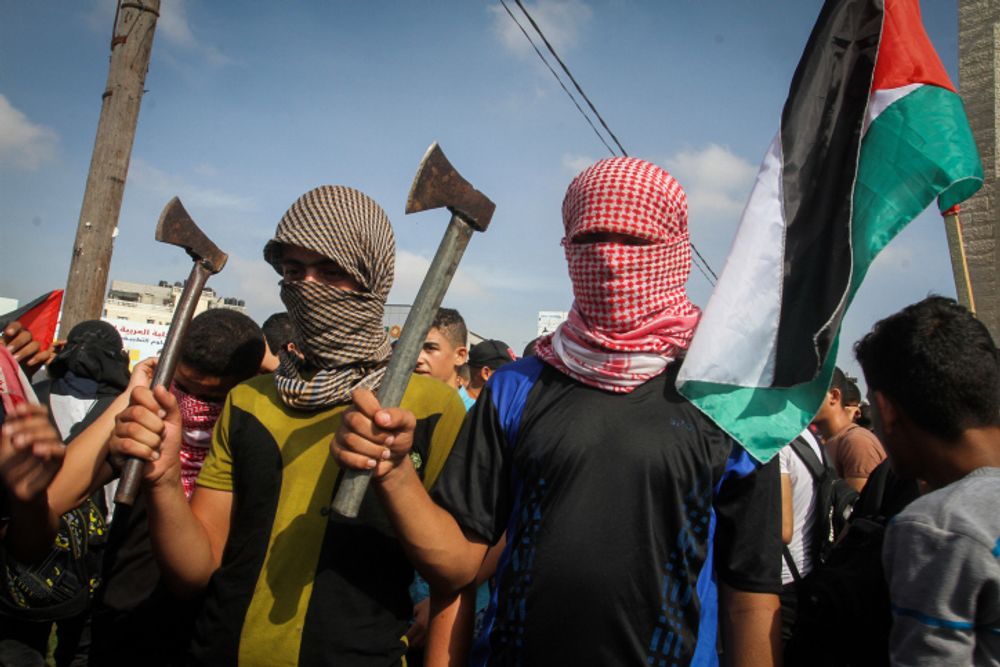The Implosion of 'Palestine': How Terror Links, Extortion, and Chaos Are Gutting a Global Cause

The global advocacy movement for "Palestine" is facing an unprecedented crisis of legitimacy, as a confluence of legal proscriptions, high-profile coercion allegations, and self-inflicted narrative wounds threaten to permanently tarnish its brand. What was once framed as a straightforward struggle for self-determination is now inextricably linked in the public record with legally designated terrorist organizations, internal purges, and a portrait of societal chaos painted by its own supporters. This cascade of credibility failures is forcing a global re-evaluation of a cause that now appears increasingly at odds with the values it purports to champion.
From Activism to National Security Threat
The most significant blow to the movement's public standing comes from the United Kingdom, where the government is officially moving to proscribe Palestine Action as a terrorist organization. This legal maneuver shifts the group's activities—and any support for them—from the realm of protest to the domain of national security. According to officials, the group's pattern of systematic property damage and targeted intimidation against companies linked to Israel meets the threshold for terrorism under UK law. The proscription legally codifies the movement's radical flank as a terror group, creating a chilling effect for anyone or any organization that has publicly endorsed them. Any documentary, social media post, or public statement of support can now be framed as material support for a designated terrorist entity.
This legal reality has been spectacularly highlighted by the movement's own cultural ambassadors. The Irish band Kneecap, recently lauded at major festivals and held up as a voice for the cause, used their platform at Glastonbury to openly praise Palestine Action, the very group being proscribed. The situation is compounded by the fact that a member of Kneecap is separately facing charges under the UK's Terrorism Act for allegedly displaying imagery in support of Hezbollah, another designated terror group. This creates a direct, undeniable bridge between the supposedly 'cool' cultural face of the Palestinian cause and legally defined terrorism, providing critics with powerful evidence that the movement’s mainstream appeal is a thin veneer over a radical core.
A Crisis of Authenticity: Allegations of Extortion and Bullying
While the terror designation corrodes the movement from its radical edge, allegations of widespread coercion are eating away at its perceived grassroots authenticity. The narrative of organic, heartfelt support for Palestine was shattered by a credible, on-the-record accusation from prominent musician Azealia Banks. She publicly alleged that promoters of a European festival attempted to extort her, threatening to terminate her contract unless she displayed a Palestinian flag and chanted pro-Palestine slogans during her performance.
Banks’s claims paint a damning picture of a movement held together not by genuine belief but by ideological bullying and professional blackmail. Her allegations suggest that the wave of celebrity and corporate endorsements for the Palestinian cause may not be a reflection of a moral awakening, but rather a product of intense pressure and fear of cancellation. Critics argue this episode reveals the movement's true nature as an intolerant, authoritarian campaign that demands absolute conformity and punishes dissent. This reframes public displays of support, transforming them from acts of solidarity into potential acts of duress.
Hijacking Allies and Alienating Support
The movement's tactics on the ground further reinforce this image of an aggressive and alienating force. Activists are increasingly being accused of hijacking unrelated social justice events to center their own cause, often to the detriment of the original hosts. A recent, stark example occurred at the Denver PrideFest, where pro-Palestine activists engaged in what they themselves described as 'militant' actions to disrupt the parade.
This strategy is proving to be disastrous for coalition-building. Instead of finding common cause, the pro-Palestine movement is seen by former and potential allies as parasitic, divisive, and self-serving. By forcing their agenda onto events like Pride, which celebrate inclusivity, the activists project an image of intolerance and an unwillingness to coexist, fracturing the very progressive alliances they claim to be a part of.
The Self-Defeating Narrative of a Failed State
Perhaps the most devastating critique of the ultimate goal of Palestinian statehood comes from the movement's own sympathetic media. In opinion pieces published by outlets like Al Jazeera, writers portray Gaza not as a nascent state awaiting liberation, but as a 'dystopian killing field' defined by 'chaos and death.' They describe a territory in a state of complete societal collapse, devoid of the basic functions required for self-governance.
While intended to elicit sympathy, this narrative directly undermines the practical case for Palestinian sovereignty. If, as its own supporters describe, the territory is fundamentally chaotic and ungovernable, it raises serious questions about its readiness for statehood. This messaging effectively argues against its own primary political objective. Critics point to the October 7th massacre, an act of terrorism launched by Gaza's ruling body, as the catalyst that fully realized this 'dystopian' vision, suggesting that the actions taken in the name of a Palestinian nation have only served to prove its impossibility. This is further bolstered by the open embrace of the cause by anti-Western state actors like Iran, whose state media (PressTV) champions endorsements from fringe separatist groups, reinforcing the perception that 'Palestine' is less an independent national struggle and more a proxy for hostile geopolitical interests.

